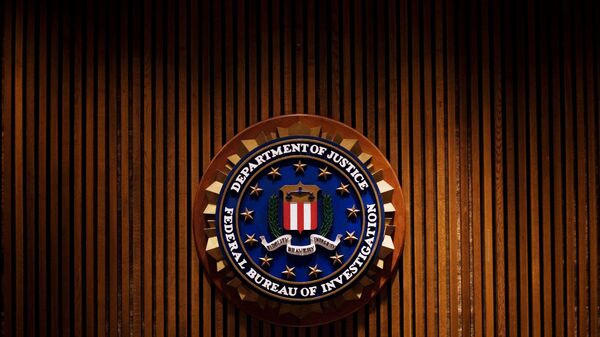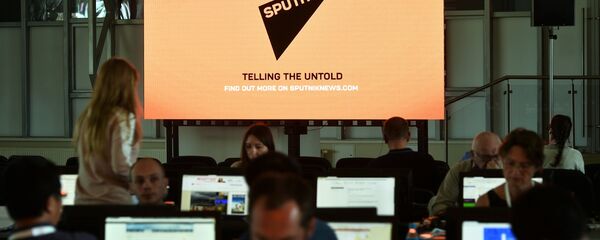Speaking with Sputnik, Secker, who co-authored the book "National Security Cinema: The Shocking New Evidence of Government Control in Hollywood," said that "political reasons" are the only explanation behind the inquiry.
"The suggestion is that Sputnik as a foreign government-funded news outlet had to send certain paperwork to the US government under the demands of FARA. Sputnik either did that, in which case there's nothing to answer for, or they didn't, in which case that should have been apparent months if not years ago. So why is the issue suddenly generating an FBI inquiry?" he pointed out.
According to Secker, this situation is the result of the tensions between Moscow and Washington, which is "inevitable" at a time he described as the "neo-Cold War."
"These people are being paranoid and stupid, but they're responding to a new phenomenon. Never before has there been another superpower with the foresight to try operating a news outlet broadcast from within Western countries in the local language," he said.
Secker further suggested that the reported investigation into Sputnik’s activities or the media hysteria over the election meddling allegations stem from the failure of the neo-cons’ foreign policy, primarily the war on terror.
"That myth might work for advancing the domestic security state but in terms of foreign policy it isn't generating much interest any more. So the neo-cons and others either need a new enemy, or always intended some kind of confrontation with Russia," Secker said.
According to the expert, the Cold War mentality still lives on in the West and is often manifested in many American and British outlets in the form of the familiar position of "if in doubt, bash Russia."
Yahoo News reported earlier this week that the Federal Bureau of Investigation (FBI) has questioned former Sputnik correspondent Andrew Feinberg as part of its investigation into whether Sputnik was acting as a tool of so-called Kremlin propaganda in violation of the US Foreign Agents Registration Act (FARA).
He also emphasized that the work of foreign correspondents in Russia is not restricted by the authorities.
"No censorship is allowed [in Russia], prosecution over content is not allowed, and, moreover, foreign media have absolutely equal rights with our domestic media," Peskov said.
The report came as a bill was recently submitted to the House of Representatives of the US Congress to amend requirements for registration of foreign agents under the FARA. The project provides additional powers to the US Department of Justice to identify and prosecute organizations that "illegally" try to influence the political process in the US.




